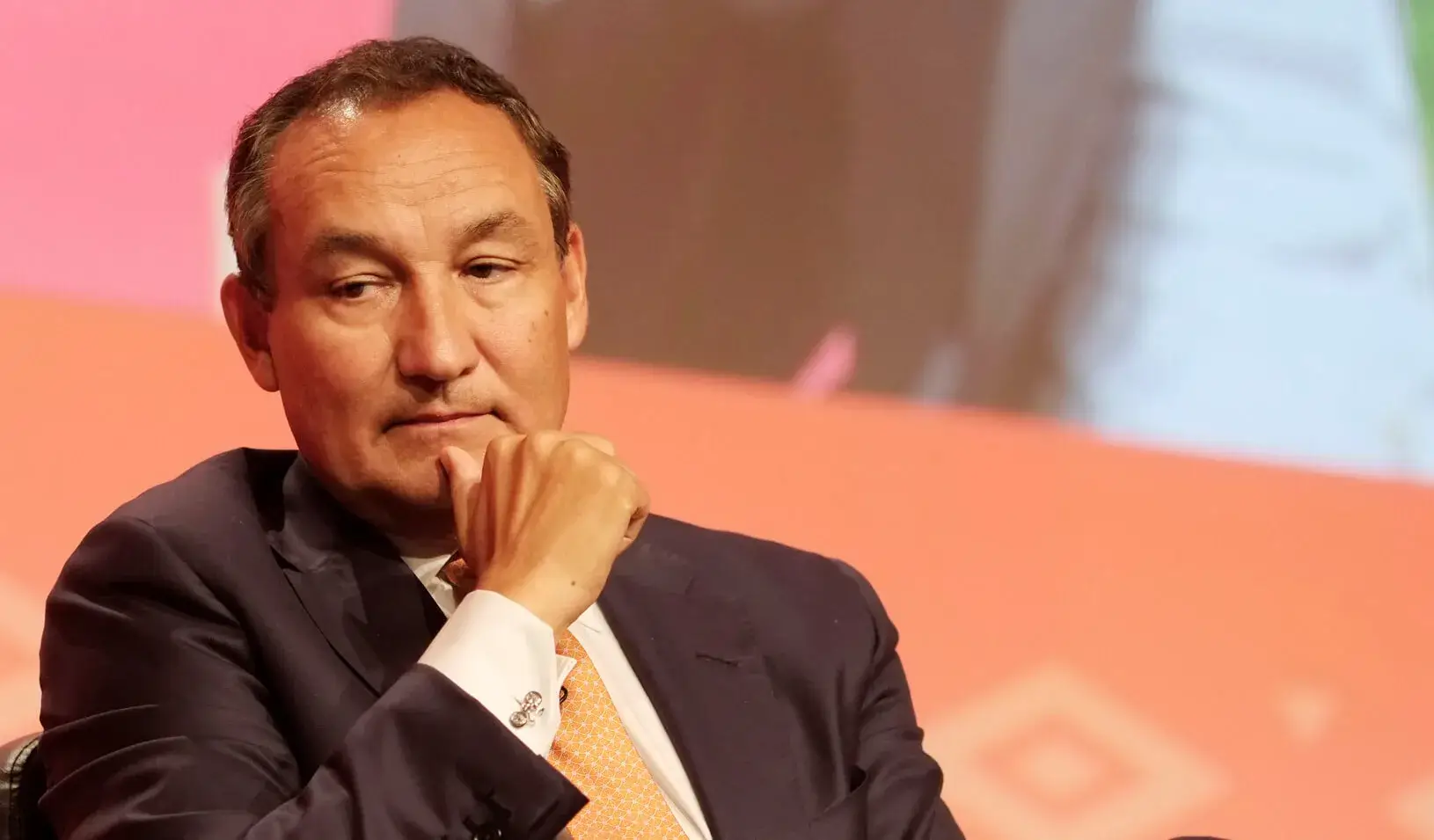We’re Willing to Excuse Bad People But Not Bad Companies
People believe corporations are less ethical than people, even when the crimes are the same.
February 03, 2020

When United Airlines earned negative headlines following a disturbing customer incident, CEO Oscar Munoz apologized on behalf of the company. That strategy, new research shows, may have helped. | Reuters/Victor Ruiz Garcia
In April 2017, United Airlines employees dragged a passenger down the aisle of an overbooked flight. Cellphone videos of the disturbing incident went viral. Two days later, UA CEO Oscar Munoz promised to “do better” and issued a public apology. “The truly horrific event that occurred on this flight has elicited many responses from all of us: outrage, anger, disappointment. I share all of those sentiments, and one above all: my deepest apologies for what happened.”
In the face of mounting criticism over the airline’s actions, Munoz’s PR tactic may have lowered tensions by tapping into a prejudice we all carry: Big corporations may do evil, but individuals like Munoz aren’t half bad.
“Even when people and organizations do identical amounts of harm to the world, organizations are perceived as being more unethical than individuals,” says Jeffrey Pfeffer, professor of organizational behavior at Stanford Graduate School of Business.
This perception, or cognitive bias, that people hold against organizations is the subject of a new study Pfeffer conducted with Arthur Jago, a former PhD student at Stanford GSB and now an assistant professor of management at the Milgard School of Business at the University of Washington, Tacoma.
The team completed six experiments asking people to judge human or organizational transgressions after reading news-like briefs that described misdeeds such as lying about a rival, failure to pay taxes, or breaking import laws and importing a fruit-borne parasite. In one experiment, 825 participants from around the world read about people or organizations that had engaged in 10 specific behaviors and rated how unethical they believed each to be. No matter where the participants lived — from Sweden to South Korea to a U.S. college campus — they concluded that the organizations had acted more unethically, despite the fact that individuals had committed the same infractions.
In follow-up experiments the researchers posed additional questions about fictional ethical missteps to a variety of study participants, and the results were consistent. Organizations were found to have caused more harm than the individuals, even when the amount of harm was objectively the same. “Even if you as an individual and some company dump the same amount of stuff into the water,” Pfeffer says, “the company is presumed to have done more harm.”
The consistent response across experiments and study participants begs the question: Why are corporations viewed as bad actors that deserve greater blame? “Because organizations often do have more power, they are seen as having more discretion and more agency,” says Pfeffer. “Therefore, they are seen as being more responsible for their actions.”
Nonprofits Don’t Escape Blame
In a fifth experiment, researchers surveyed 506 American adults. Participants read fictional news blurbs about for-profit and nonprofit organizations, an individual, a family business, and a government agency, each caught in compromising circumstances: leaving a machine on and accidentally starting a fire, spraying pesticide, dumping insecticide into a lake, running noisy machinery during non-work hours, and failing to pay a plumber for contracted work. Survey participants concluded that the infractions committed by for-profit entities were worse than those done by individuals, family businesses, and government agencies. Interestingly, they judged nonprofits as harshly as for-profit corporations. “I think what that shows is [people don’t focus] so much on the profit of the organization,” Pfeffer says, but rather on organizations as general entities. “Organizations are seen as bigger, even if they aren’t.”
Asked his advice the next time an organization gets caught in a pickle, Pfeffer responds, hypothetically, that he would suggest identifying a few guilty employees inside the organization rather than ratting out the organization as a whole. Instead of saying, for example, “the decision that led to the toxic spill was made by ABC Inc.,” attribute the spill to the workers responsible for letting it happen. “Presumably the blame would be less,” Pfeffer says, “because individuals tend to be blamed less and are not given the same level of sanctions as companies.”
Understanding Our Bias
It may defy reason that we blame inanimate entities for unethical behavior more than freethinking individuals, but our willingness to excuse bad people over bad companies is deeply rooted. Pfeffer harkens back to research on cognitive biases conducted in 1974 by psychologists Kahneman and Tversky, who found that they are nearly impossible to overcome — yielding decisions based on preconceived notions rather than logic.
As a result, Pfeffer says, we ought at least to recognize that people are hard-wired to judge organizations more critically than individuals for causing the same degree of harm. “If there’s the same amount of damage being done, it’s kind of weird that we would hold one set of agents much more responsible and judge them more harshly than another set of agents.”
Weird, but also true. Take Mark Zuckerberg. He holds a vast amount of power and control and yet is seen as relatively small and powerless compared to the behemoth organization he runs. He’s judged as “fallible and forgivable,” says Pfeffer.
In the end, Pfeffer believes we’re much more likely to forgive people for their mistakes. “Certainly in the United States we give people second and third chances,” he says. At the same time, we’re much less likely to make benign judgments in the case of organizations. We expect more from corporations because they’re bigger than any single individual. “We expect them to be better.”
For media inquiries, visit the Newsroom.
Explore More

How to Get Beyond Talk of “Culture Change” and Make It Happen

Conflict Among Hospital Staff Could Compromise Care



